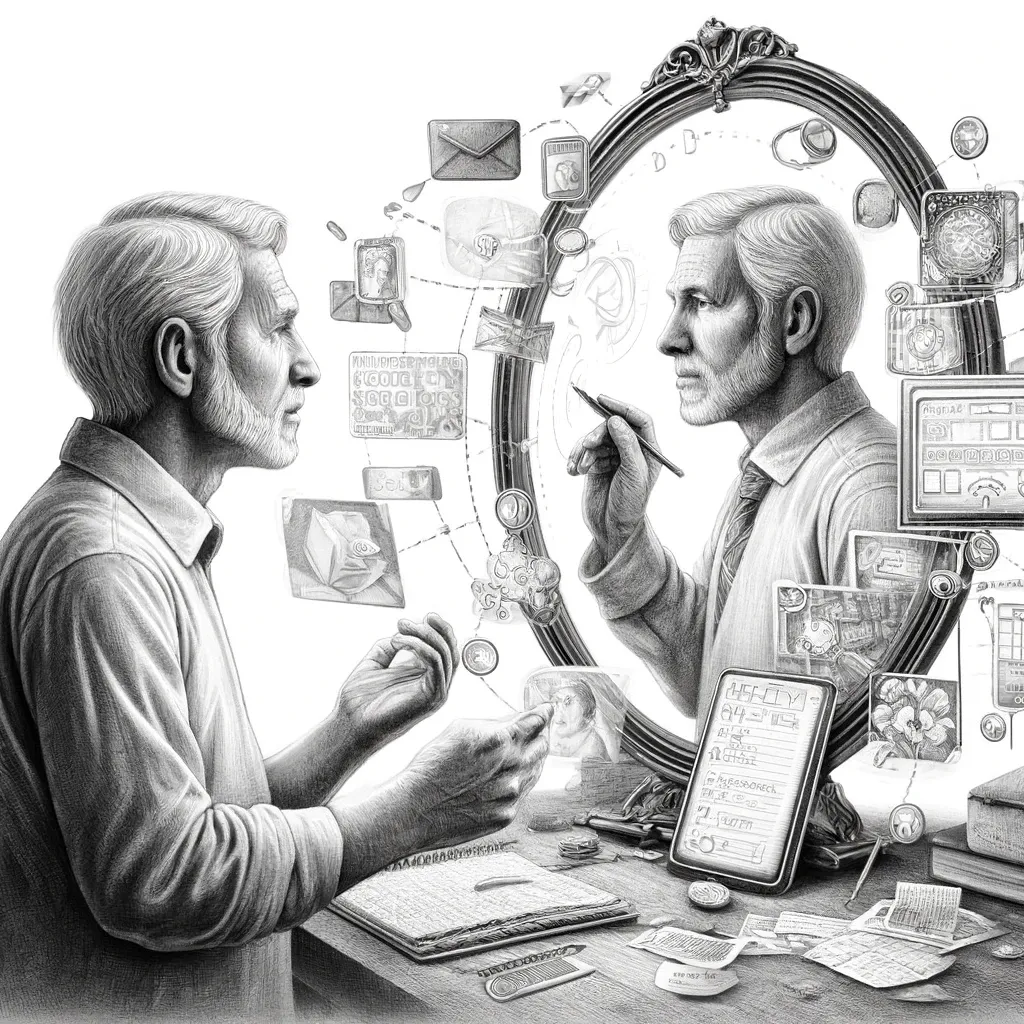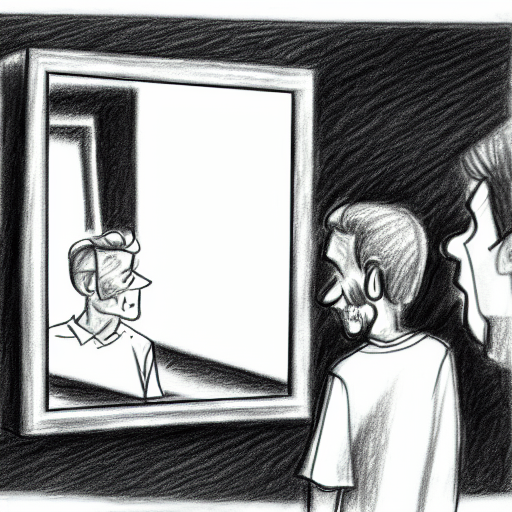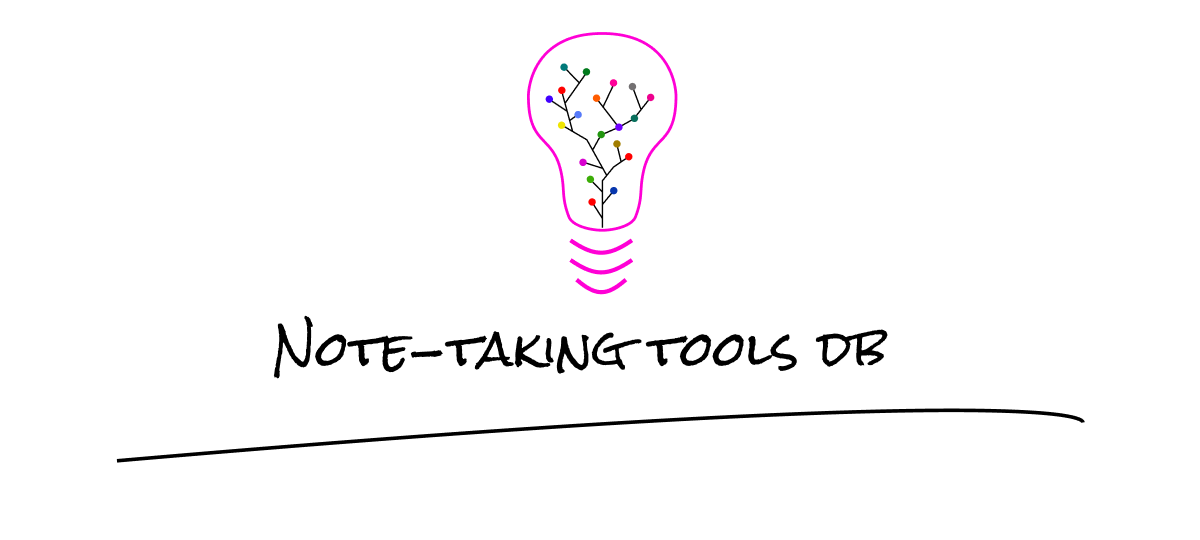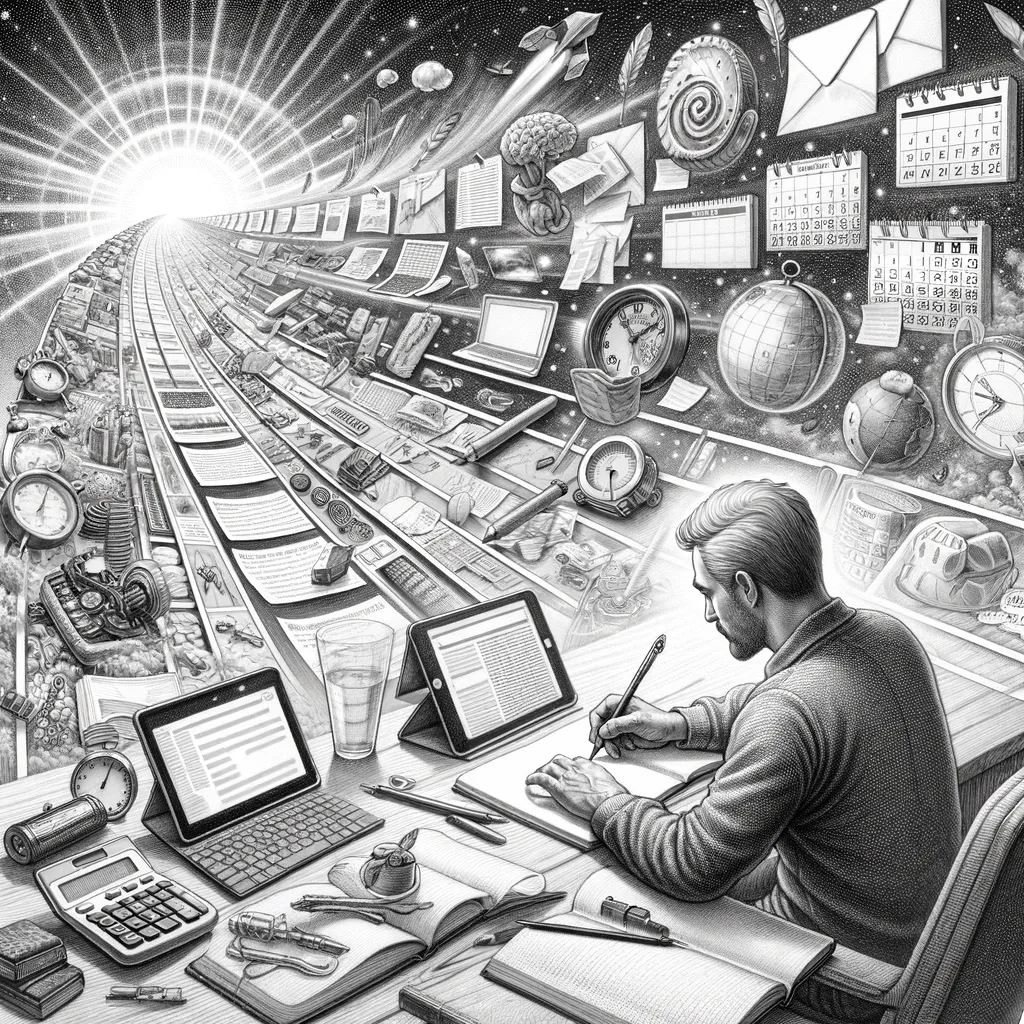How to communicate with your future self
Most people struggle to communicate with others. Sometimes they realize, sometimes they don't. But many would also benefit from better communicating with their future self. Here's why it matters, and how to do it.

Most people struggle to communicate with others. Sometimes they realize, sometimes they don't. But many would also benefit from better communicating with their future self.
Why we should communicate with our future self
We spend most of our time communicating with others, and thinking about what we are doing, what we need to do next, etc. We live mostly in the "now" (assuming we are not stuck in the past), looking at the world through a lens, stuck in a narrow tunnel.
I feel like most of us fail to realize that we can (and should?!) also better communicate with our future selves. We are who we are now, but who we are evolves every day. I'm the same person I was 20 years ago, but I have gradually changed. My goals have shifted. My perspective on the world has drastically changed. I have different opinions, tastes, needs/wants, etc. We change gradually, then suddenly realize we're very different.
In a sense, I don't care all that much about what the 20-year-old version of myself thought or even wanted. Still, I am often interested in looking back, searching for meaning, looking to better understand my journey, my mistakes, how I evolved, how my views on the world have shifted, etc. If I didn't care about being able to communicate with my future self, all I could rely on is my memory. And my memory is flaky. It is incomplete. It is biased. It lies to me. It deforms facts and reality all the time. So what can I do?
Leave breadcrumbs for you to follow
The first means I use to communicate with my future self is by leaving breadcrumbs on my path. Journaling is a key part of my organization and productivity systems. Each and every day, I keep my daily note open, and I keep track of my goals, progress, thoughts, discoveries, challenges, etc. Whenever I want to look back at a specific point in time, I can explore those. Looking at my past notes resurfaces the mental context I was in at the time. Of course, it is blurry and incomplete, but it often lets me remember way more than relying solely on my memory can. Needless to say, it all depends on my consistency with journaling and the level of detail I'm keeping (which varies a lot over time!).

A second means I rely on is the periodic reviews I perform. I do my best to conduct weekly, monthly, quarterly and yearly reviews. As part of those, I already look back at specific time periods, and I summarize the information I've collected. Thus, my periodic review notes are condensed versions of my past. It's a sort of progressive summarization process. If I look at a yearly review note, I'll have a high-level overview of how my year went by. And I can dive deeper if I need to.

Periodic notes are of great importance to me for multiple reasons. First, they let me look somewhat objectively at my past. Unless I'm unconsciously lying to/deceiving myself (which happens!), the information I collect represents my reality at the time. Second, they allow me to be realistic about the progress I've made toward my goals, the challenges I've faced, and my successes and failures. This helps me learn from my mistakes, adjust course, or even change my goals based on experience. Third, during those periodic reviews, I take time to look forward and define goals for the future, taking into account who I was, who I am, and who I want to be. As such, periodic notes are key for goal setting, progress evaluation, vision, and alignment. Last, but not least, I can use periodic reviews to surface and formulate rules and principles for myself. Those evolve over time, together with me. Some appear, others disappear. They don't dictate my behavior, but they can guide my decision-making process.

Interestingly, periodic notes boost our natural ability for autobiographical planning. When we get bored, we get in "default mode", autopilot (e.g., when you're mowing the lawn, doing your laundry or driving). That's actually when our brains get really active. It's also during those times that our mind wanders. We (consciously and/or unconsciously) take note of the big moments, set goals, and identify the steps needed to reach them. That's when we solve our most annoying problems and move forward. With periodic notes, we can do the same, but in a very conscious and methodical way.
An additional approach I'm currently testing is adding personal notes to my periodic reviews, in the form of messages from my current self to my future self. I've taken inspiration from the movie Memento (a must-watch!). I write those notes as if I was writing letters to a friend on the other side of the planet. I don't impose a structure for these. I just capture my thinking, without trying to distort reality. Of course, such notes are biased, incomplete, and only represent a thin slice of my day-to-day reality, but they have the merit to capture a part of my story. I capture feelings, memories, hopes, dreams, and more. Whatever I feel like sending to my future self.
For things that I want to make sure I stumble upon later, I use calendar tasks, events, and reminders. It works great for the short term and for the distant future. I find those useful and fun, as I can use those reminders to point my future self toward specific ideas/information. It works for todos, but also for life advice, remembering rules, principles and past mistakes.

Writing my blog articles and newsletters is also a way for me to leave breadcrumbs along my path. Each article has a backstory, and ideas that touched me in some way. Sometimes personally, sometimes professionally. Those ideas have moved or influenced me. They are part of who I am. And within my newsletters, I share bits of my journey. Souvenirs and milestones.
All of those elements are breadcrumbs. Little pieces I capture, and collect. Put together, they capture elements of my past, and messages that could be useful to me in the future. Thanks to those, I can look back at my past whenever I want or need. I can remind myself about my past, the difficulties I've encountered, my successes and failures. I can get back into my "old shoes", so to say. They could help me be more positive, more realistic, prouder of my progress, etc. They have value because they capture what my memory cannot. They're as detailed as I want them to be, which is in stark contrast with my memory, which feels much fuzzier/unreliable than I would like. After all, since we forget so much, why not help ourselves remember more of what matters?
Those breadcrumbs are not only useful to me, but actually also to those around me. My partner, my kids, and whoever could be interested in my life. Not to say that all of that information is nor should be public/freely accessible to everyone. But for instance, once I die, I'd be glad to let my family consult my notes.
My current approach
Currently, my process for communicating with my future self mostly relies on my Personal Knowledge Management system, and thus on my note-taking application. I use Obsidian for this purpose, along with a set of plugins, templates and a methodology that I've bundled together, and that I am selling as a whole as the Obsidian Starter Kit.
Of course, I'm biased, as it is my system and I like it, but maybe it could also be useful to you (at least as a starting point or as inspiration to improve your own). Whenever I dive into something new, I always like following the path of others, as it helps me avoid certain pitfalls, but also prevents me from wasting too much time along the way. That being said, I am sure that your system will differ from mine, and that's alright. We are all different, and that's perfectly fine!
I am a firm believer in the value of note-taking, note-making and Personal Knowledge Management. Many people are missing out. Many believe they can rely on their memory, but it's rarely true. I've learned to trust my systems rather than myself. It's quite intuitive. We humans are not machines. That's why we're special. But it's also why we're unreliable by nature.
Conclusion
In this article, I've shared some ideas about why it is useful to better communicate with our future selves, and why doing so can be beneficial to ourselves, but also to others. I've also shared some ideas about how to approach this in practice. I feel like we all leave so little behind that it's comically sad. Many people fail to capture important parts of their journeys. We keep repeating the same mistakes, forgetting important moments, wins and failures. We fail to help our future selves, and fail to leave enough behind us.
So, how do you plan to communicate with your future self?
About Sébastien
I'm Sébastien Dubois, and I'm on a mission to help knowledge workers escape information overload. After 20+ years in IT and seeing too many brilliant minds drowning in digital chaos, I've decided to help people build systems that actually work. Through the Knowii Community, my courses, products & services and my Website, I share practical and battle-tested systems. You can follow me on X 🐦 and on BlueSky 🦋.
I am an author, founder, and coach. I write books and articles about Knowledge Work, Personal Knowledge Management, Note-taking, Lifelong Learning, Personal Organization, and Zen Productivity. I also craft lovely digital products.
If you want to follow my work, then become a member and join our community.
Ready to get to the next level?
If you're tired of information overwhelm and ready to build a reliable knowledge system:
- 🎯 Join Knowii and get access to my complete knowledge transformation system
- 📚 Take the Course and Master Knowledge Management
- 🚀 Start with a Rock-solid System: the Obsidian Starter Kit
- 🦉 Get Personal Coaching: Work with me 1-on-1
- 🛒 Check out my other products and services. These will give you a rock-solid starting point for your note-taking and Knowledge Management efforts






